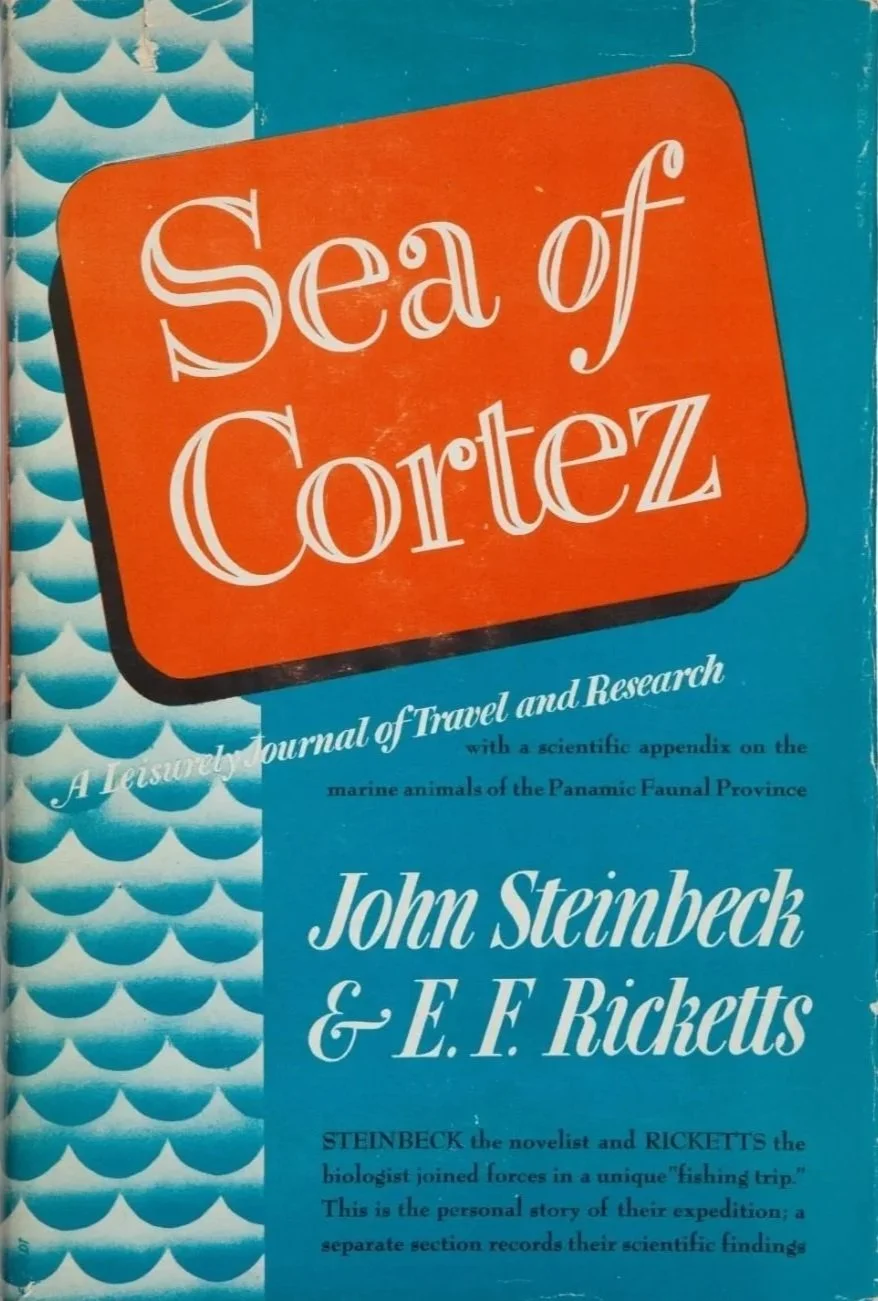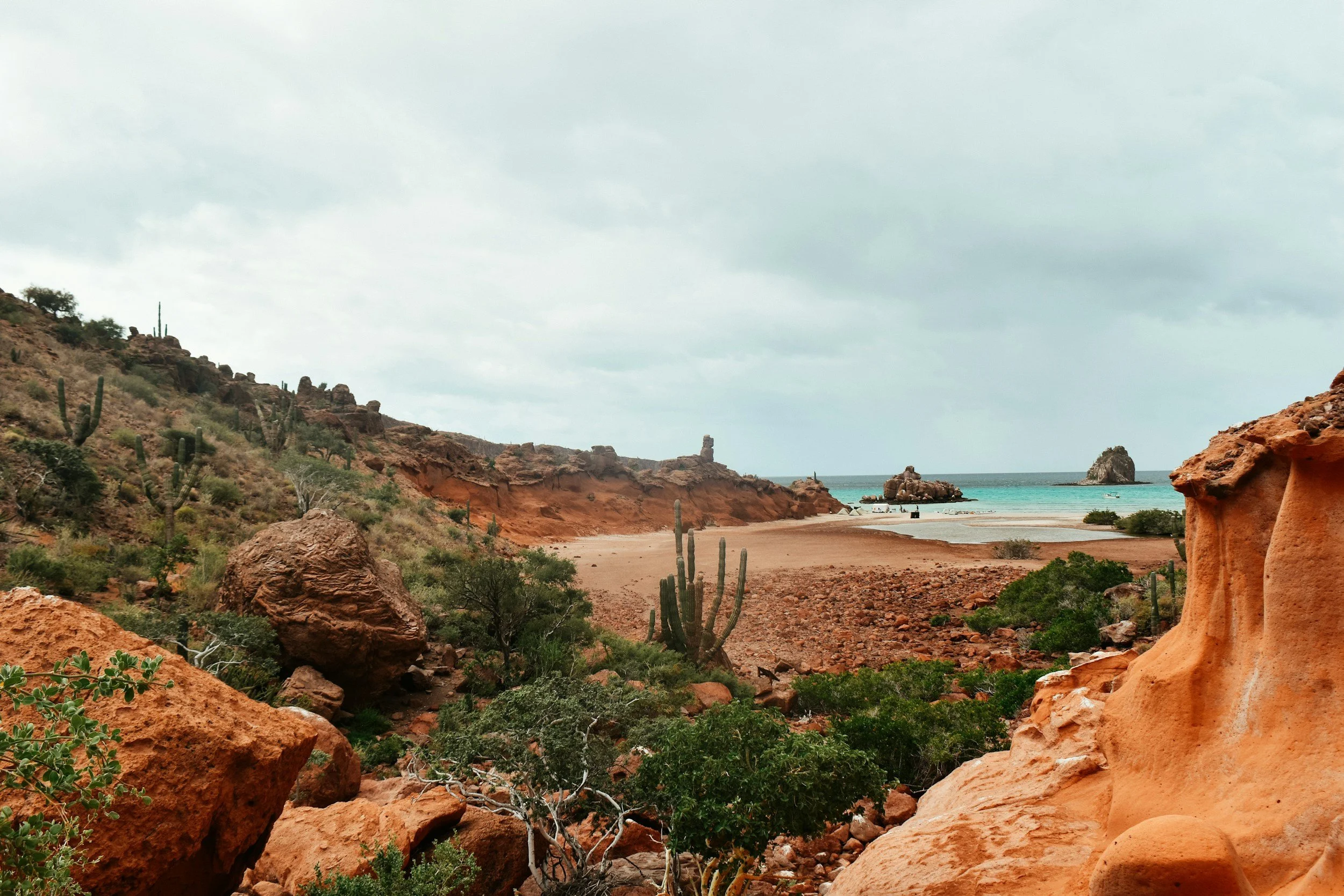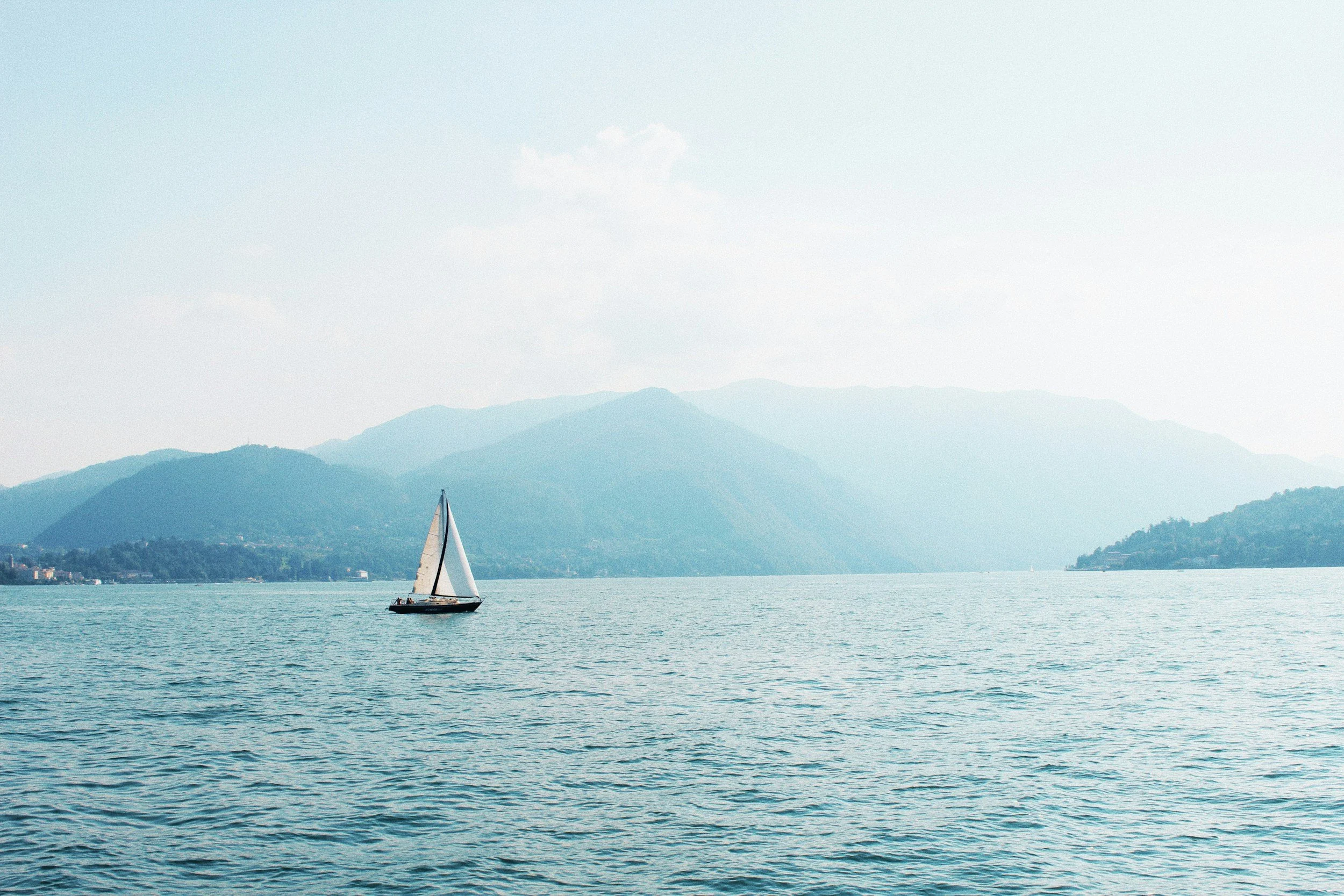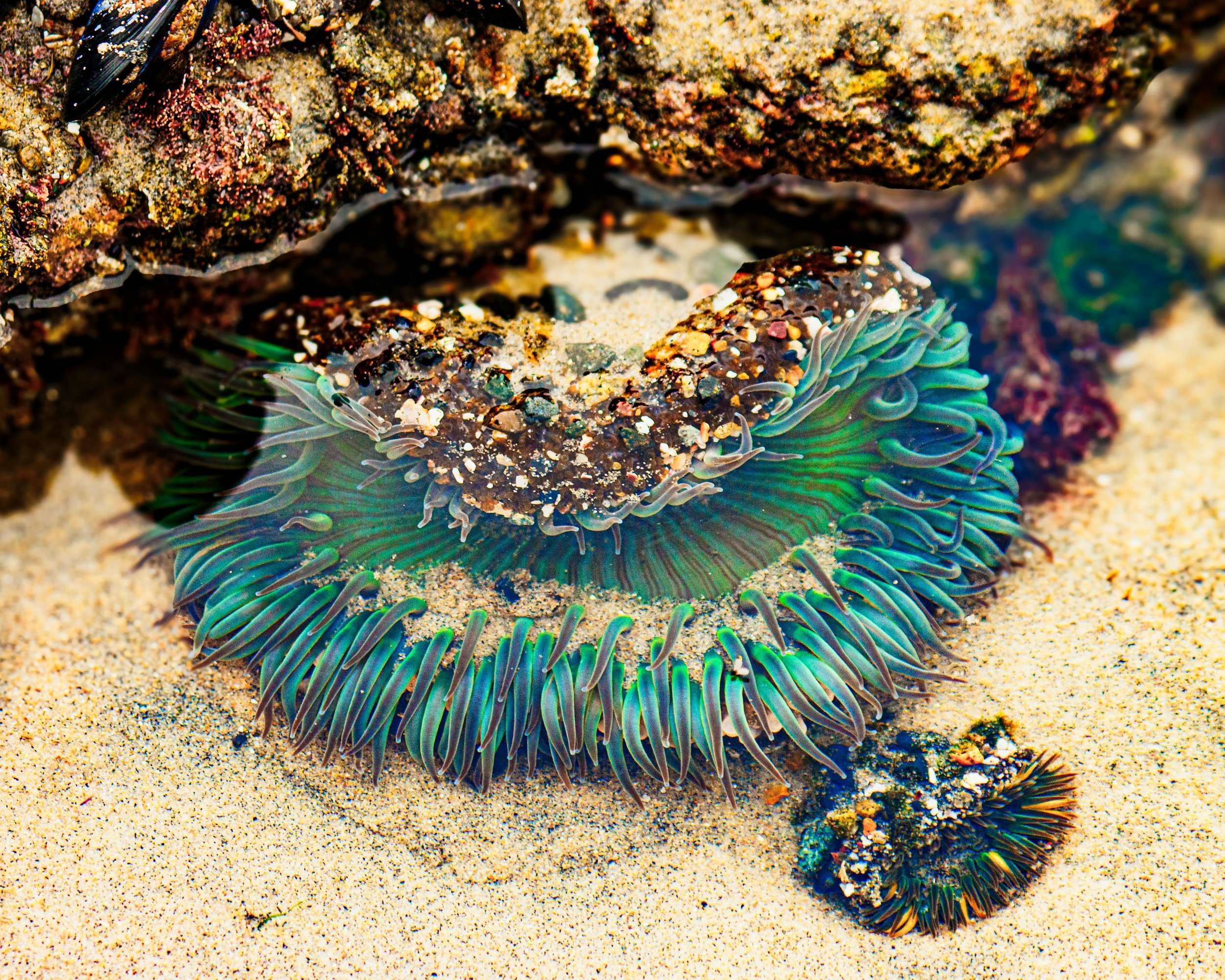
Current Scientific Expeditions
Following Steinbeck & Ricketts’ Footsteps
Shifting Tides in the Sea of Cortez
In a modern-day return to the Sea of Cortez, our team will retrace the iconic 1940 expedition of John Steinbeck and Ed Ricketts—resurveying coastal biodiversity at their original sites while capturing the scientific and philosophical spirit of their expedition.
Through vivid underwater footage, dramatic intertidal landscapes, and compelling storytelling about science in a changing world, we’ll reveal how ecosystems—and our relationship with them—have changed over the 85 years since Steinbeck & Ricketts visited these rugged and remote shores.
An Enduring Legacy
In 1940, Nobel Prize winning author John Steinbeck and marine biologist Ed "Doc" Ricketts departed Monterey aboard a sardine trawler to survey intertidal marine organisms in México’s Sea of Cortez.
Accompanied by a ragtag crew straight from the pages of Cannery Row, they viewed the expedition as both scientific and soulful escape into the rugged Baja peninsula to understand the overlooked animals that live where the desert meets the sea.
Their book's enduring value lies not just in its biological data, but in its human element—their reflections on nature, science, and the human condition. Within Sea of Cortez, Steinbeck & Ricketts chronicled the people and communities they encountered, and reflected on our relationship with the environment, the role of science in society, love, war, and human nature.
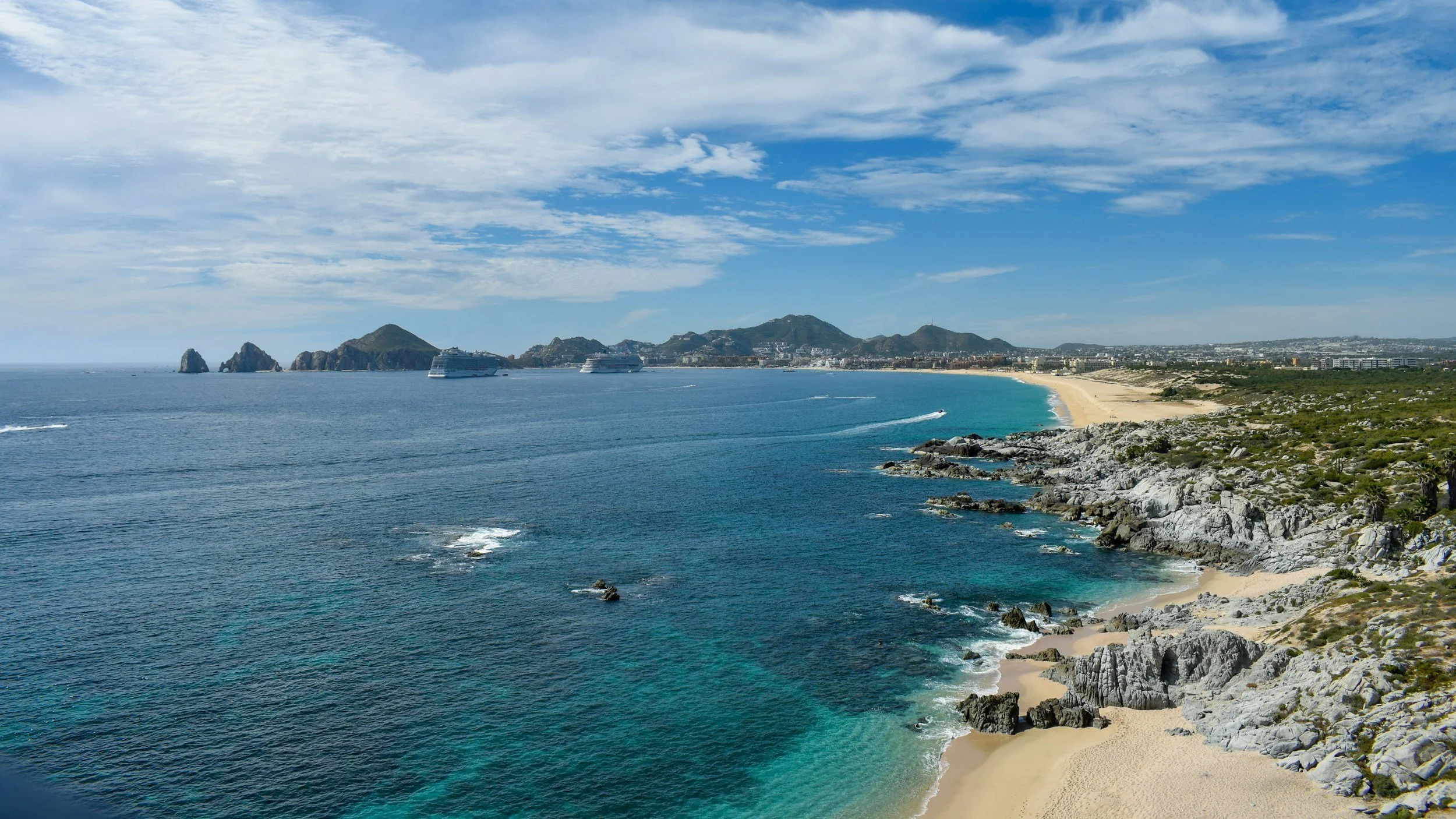
An Ecosystem at a Crossroads
An Ecosystem Under Threat
The Sea of Cortez—an iconic yet imperiled marine ecosystem.
The region has changed dramatically since Steinbeck & Ricketts last visited due to commercial development, overfishing, and a warming climate.
In 1940, Ricketts found the intertidal regions of the Sea of Cortez "ferocious with life," however, much has changed in the intervening years, which we hope to quantify with this resurvey expedition.
In retracing the historic 1940 Steinbeck-Ricketts expedition, our team will blend science, storytelling, and philosophy throughout our documentary footage and photographs, spotlighting how marine biodiversity has changed and why it matters.
We will sail along their same route in March of 2026, sampling the often-overlooked intertidal animals that captured Ricketts’ imagination and connecting with the vibrant people that depend on this vital ecosystem.
We believe this journey will resonate with readers of our book and viewers of our documentary as both a call to action and a tribute to the enduring connection between people and place—just as Sea of Cortez inspired generations of scientists, conservationists, and activists.
Retracing Steinbeck & Ricketts’ steps almost a century later
Making a Lasting Impact
As part of our expedition, we are partnering with local environmental groups to establish long-term citizen science monitoring at the very tidepools Steinbeck and Ricketts once studied. By blending modern eDNA science with hands-on biodiversity surveys, we will equip the communities of Baja with new skills to understand and protect the coastlines that sustain them, helping to deepen their relationship with these shorelines and safeguard them for generations to come.
Our aim is to use our data, art, documentary, and book to highlight the importance of the fragile coastal ecosystem and to inspire a lasting connection between people and place. We hope to inspire people from all backgrounds to see that they, too, can shape the future of environmental science and protection with small acts of curiosity, creativity, compassion, and exploration.
We are actively fundraising to meet our financial needs to carry out this expedition and set sail in March 2026. Your generous support would allow us to reach more of Steinbeck and Ricketts’ original sites, help fund scientific equipment, increase the number experiential learning and citizen science programs we can host with local environmental groups, and increase the lasting impact we can make together!
Thank you!
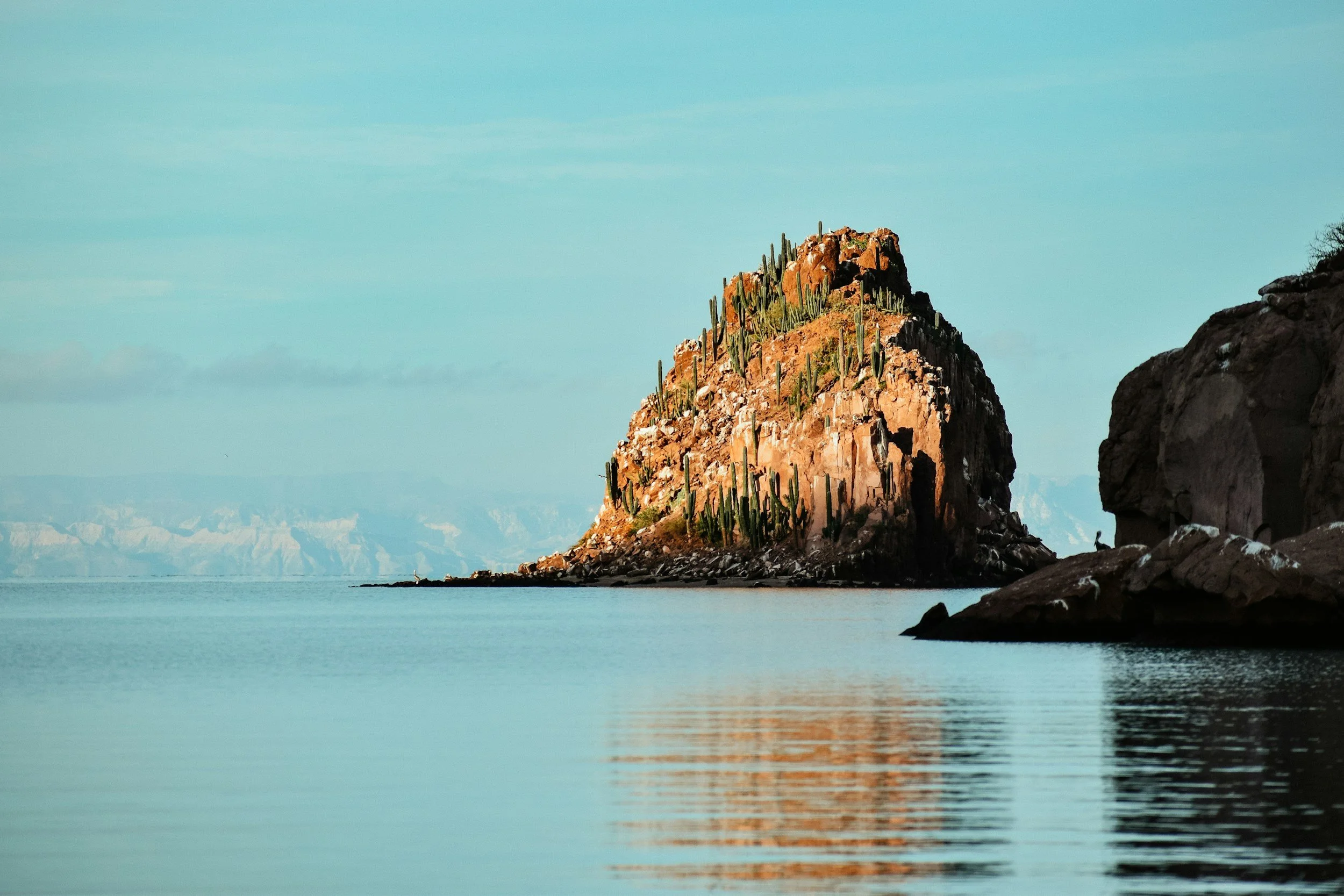
Donate to our 2026 Sea of Cortez Expedition
Contact us.
Interested in working together? Fill out some info and we will be in touch shortly. We can’t wait to hear from you!


